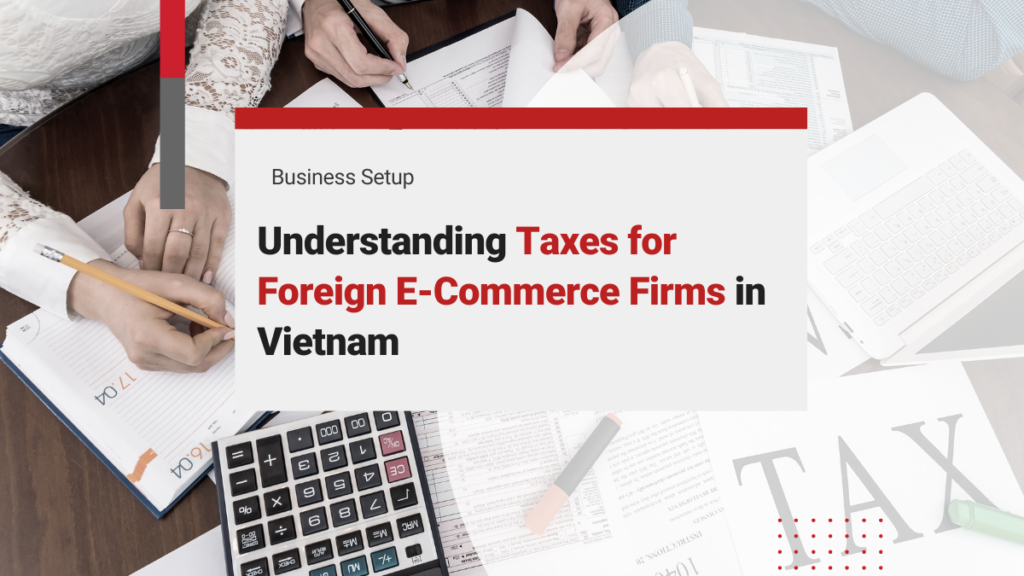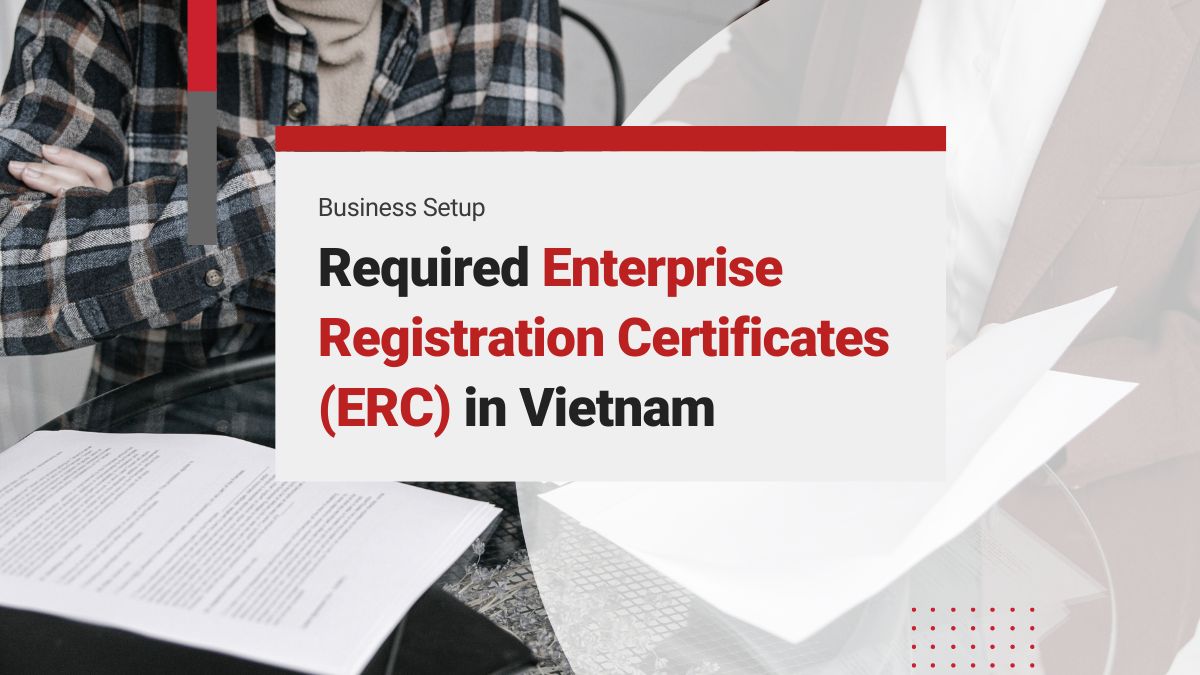E-commerce taxes in Vietnam can seem complex, especially for foreign firms tapping into this thriving market. This article outlines essential tax obligations specifically designed for foreign e-commerce companies earning an income in Vietnam. You’ll gain clarity on applicable taxes, compliance requirements, and practical guidance to streamline your tax processes, ensuring your business meets local regulations smoothly. Many foreign sellers also consult local accounting and taxation services providers to better align their e-commerce operations with Vietnam’s fast-evolving digital tax framework.
Overview of Tax Obligations for Foreign E-commerce Firms in Vietnam
Foreign companies that sell goods or services in Vietnam through e-commerce must register and file tax returns for income from these transactions. This obligation applies even to those without a permanent establishment in the country, making tax registration and declaration mandatory. The main taxes applicable to these foreign vendors include Value-Added Tax (VAT) and Corporate Income Tax (CIT).
The Vietnamese government has introduced new VAT regulations with various rates based on the income type from sales in Vietnam. Foreign e-commerce firms must declare and pay VAT and CIT to comply with local tax laws. Non-compliance can result in severe penalties, so foreign businesses must understand and fulfill their tax responsibilities.
This comprehensive understanding of tax obligations is the first step for foreign e-commerce businesses toward successful operations in Vietnam.
Tax Registration Requirements for Foreign E-commerce Businesses
Foreign e-commerce businesses must adhere to tax registration, declaration, and payment rules in Vietnam, even for overseas suppliers without a permanent establishment. Organizations may authorize agents or appoint representatives to handle tax matters, streamlining the registration process.
A dedicated portal for e-commerce companies handling tax registration and payment was launched on March 21, 2022. This portal simplifies the process for foreign e-commerce businesses, requiring them to register for electronic tax transactions via the General Department of Taxation’s (GDT) online portal. The first step involves registering to conduct online tax transactions using a dedicated email on the GDT’s portal.
First-time taxpayer registration applications should be submitted at enterprise registration locations or the tax authority where the organization is located. The deadline for first-time taxpayer registration is 10 working days from specified dates, with a fine of USD 596 for late registration. Foreign vendors can register directly or delegate the process to agents in Vietnam, ensuring timely and accurate compliance.
Quarterly Tax Declaration and Payment Process
Registered foreign suppliers must declare and pay taxes like VAT and corporate income tax quarterly. The deadline for submitting tax declaration dossiers is defined by the Law on Tax Administration. These documents must contain key information such as the taxpayer’s name, tax identification number, and transaction address.
The General Department of Taxation has established an online portal for submitting tax declaration dossiers, enhancing efficiency and accuracy. Implementing electronic invoicing is required for all businesses, including storing and archiving e-invoices according to regulations to facilitate audits.
This shift towards electronic invoicing ensures compliance and transparency in tax administration. Businesses must suspend e-invoice use if their Tax Identification Number is invalidated or if they are not operating at the registered location.
Foreign vendors can amend their declarations if they notice any incorrect details in their previous submissions using an authentication code issued by the tax authorities. Penalties for late tax payments include a daily penalty of 0.03% on the outstanding amount, emphasizing timely compliance.
Withholding Taxes for Foreign Contractors
The foreign contractor tax (FCT) is withheld, declared, and remitted by the Vietnamese company. FCT applies to payments made to foreign contractors by Vietnamese companies, regardless of where the services are rendered. This tax ensures that foreign contractors contribute to the Vietnamese economy.
Specific rates for FCT vary based on the nature of the services provided. For instance, management fees and head office services by foreign contractors are subject to withholding tax at specific rates. Payments for certain activities like interest and royalties often have specific withholding tax rates, typically around 5% for interest and 10% for royalties.
Vietnamese companies must withhold and declare taxes on behalf of foreign suppliers without a registered establishment in Vietnam. Banks and payment intermediaries must report and withhold taxes on payments made to foreign suppliers if transactions are processed through them.
If payments are for the supply of goods without associated services, FCT generally does not apply. Foreign contractors not following the Vietnamese accounting system must declare their tax payment each time a tax liability arises.
Read More: How to Calculate Foreign Contractor Tax (FCT) in Vietnam?
Implications of Double Taxation Avoidance Agreements (DTAAs)
Double Taxation Avoidance Agreements (DTAAs) aim to prevent tax evasion and avoid double taxation on income. As of 2023, Vietnam has signed DTAAs with over 80 countries and territories, facilitating smoother international trade and providing tax relief to businesses operating in multiple jurisdictions.
Tax relief from DTAAs is not automatic; businesses must determine if their income qualifies and apply for exemptions or reductions through Vietnamese tax authorities. Only income tax qualifies for exemptions or reductions under Vietnam’s DTAAs. The types of Vietnam-sourced income and tax relief eligibility must be determined to apply.
Vietnam ratified the Multilateral Convention to Implement Tax Treaty-Related Measures to Prevent Base Erosion and Profit Shifting (MLI) in February 2022, amending its double tax agreements. The updated BEPS Convention, effective September 1, 2023, includes new tax provisions enhancing compliance among foreign e-commerce firms. These agreements and regulations are crucial for facilitating international trade and ensuring fair taxation.
Penalties for Non-Compliance
Foreign e-commerce firms face penalties for outstanding tax liabilities, which can be enforced against their legal representatives. Accurate and complete tax returns are crucial to avoid these penalties. Delayed tax returns can incur fines, with potential penalties representing a significant portion of the owed amounts.
Read More about InCorp Vietnam’s Corporate Tax & Compliance Services for Foreign Firms
Tax Responsibilities of Vietnamese Organizations
Vietnamese organizations purchasing from foreign suppliers and foreign organizations must now withhold, declare, and remit taxes on behalf of those suppliers, as mandated by new laws. This responsibility ensures that foreign businesses without a registered presence in Vietnam still contribute to the local pay tax system.
E-commerce platform operators must withhold and pay taxes on behalf of foreign suppliers. They must also handle tax declarations and payments for individual sellers using their services. This effort is part of broader tax administration reforms aimed at increasing compliance and revenue collection from e-commerce activities.
Organizations managing e-commerce platforms must also withhold taxes on management fees paid to foreign contractors. These steps ensure that all transactions involving foreign suppliers are adequately taxed, maintaining a level playing field for domestic and international businesses.
Recent Changes in Tax Laws Affecting E-commerce
The new VAT Law will introduce a 10% VAT rate for foreign suppliers engaging in e-commerce, up from the previous 5%. The annual revenue threshold for triggering VAT and personal income tax has also been raised to over USD 7,957. These changes reflect the Vietnamese government’s efforts to modernize its tax system and address the evolving e-commerce landscape.
The regulations in Circular 80, effective from January 1, 2022, clarify the tax obligations for foreign e-commerce suppliers. These legislative changes aim to ensure a fair and transparent tax environment for both local and foreign businesses operating in Vietnam.
These recent changes in tax laws significantly impact foreign e-commerce businesses, requiring them to stay updated and adapt their compliance strategies. Understanding these changes is crucial for maintaining compliance and avoiding penalties.
Best Practices for Ensuring E-Commerce Taxes in Vietnam
Tax compliance is critical for foreign e-commerce businesses in Vietnam. One key practice is maintaining comprehensive records of all e-commerce-related documents under Vietnamese regulations, including transaction records, invoices, and communications related to sales and services. Keeping detailed and organized records can significantly ease tax declarations and audits.
Businesses must keep track of the latest tax regulations to avoid administrative and tax penalties. Seeking advice from qualified tax professionals can provide valuable insights for navigating the complex tax landscape. Maintaining tax compliance requires transparent product and service offerings, timely tax declarations, and accurate documentation.
Successful foreign suppliers often understand and utilize available tax incentives effectively. By following these practices, e-commerce businesses can avoid penalties and ensure smooth operations in Vietnam’s growing e-commerce and digital economy.
How InCorp Can Help?
InCorp can expertly guide foreign e-commerce firms through the complexities of Vietnam’s tax landscape, alleviating the challenges of compliance. We ensure you fully understand your tax obligations, navigate the registration requirements, and manage the quarterly declaration processes efficiently. InCorp’s expertise encompasses the intricacies of Double Taxation Avoidance Agreements (DTAAs) and the latest changes in Vietnamese tax laws, keeping you informed and proactive.
We can implement best practices, including meticulous record maintenance and professional advice, to guarantee that your business operates smoothly within the regulatory framework. By partnering with InCorp, foreign e-commerce businesses can confidently navigate the dynamic Vietnamese market, ensuring compliance and fostering sustainable growth.

clients worldwide

professional staff

incorporated entities in 10 years

compliance transactions yearly
Learn the Right Setup for Business
Expansion in the Vietnam
Frequently Asked Questions
Do corporate customers in Vietnam have to report and make withholding taxes on payments to foreign vendors who register and pay taxes?
- Corporate customers in Vietnam do not need to report or withhold taxes on payments to foreign vendors who have registered and are paying taxes in Vietnam. This streamlines the process for both parties involved.
How many countries and territories have DTAAs negotiated and signed with Vietnam as of 2023?
- As of 2023, Vietnam has negotiated and signed Double Taxation Avoidance Agreements (DTAAs) with over 80 countries and territories. This extensive network highlights Vietnam's commitment to fostering international economic relations.
What is the penalty for tax shortfalls in Vietnam?
- The penalty for tax shortfalls in Vietnam is a late interest charge of 0.03% per day. Timely tax compliance is essential to avoid these penalties.






